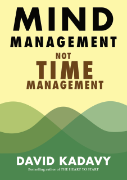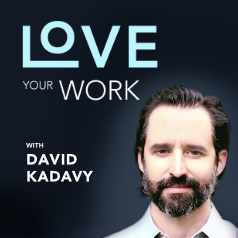Subscribe to blog updates via email »
Week of Want: I killed my to-do list, then Google bought my ideas
The email seemed as urgent as it was hastily written.
Subject: “IMMEDIATE Action Reqeusted [sic]”
Attached to the email was [redacted], [redacted], and another [redacted].
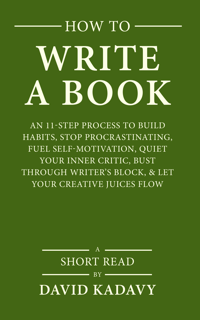
WANT TO WRITE A BOOK?
Download your FREE copy of How to Write a Book »
(for a limited time)
I needed to review the [redacted], and sign them within 18 hours. Once I did that, [redacted], or [redacted], or cases of TopoChico, or other forms of compensation that I can’t specify were going to be transmitted from Google, Inc., to me.
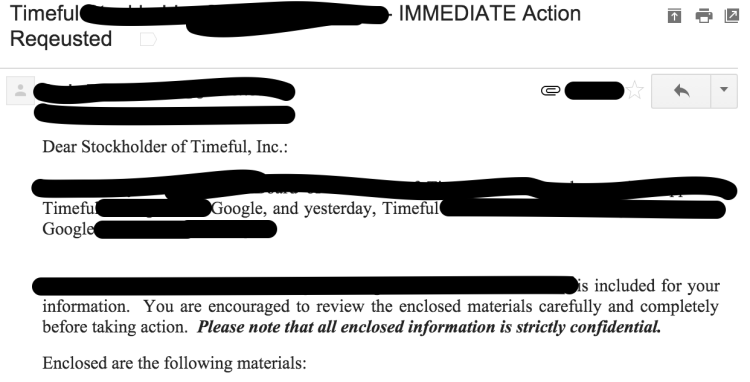
No, this email was not from a “Nigerian prince.” This was real life.
Two years prior, an equally suspect email appeared in my inbox.
“[Paraphrase: I’ve accomplished a lot already]. I’ve read your blog, and we have a reason to chat…”
Looking back at that email, it Shakes My Head how resistant I was to engage with this person.
“I’m heads-down on a project and prepping for some travel so I’m not doing meetings for at least the next couple of weeks – just trying to cut down on cognitive overhead.”
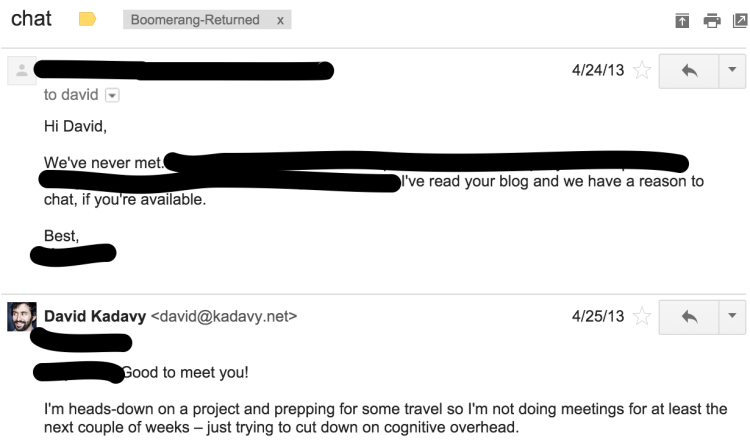
I was very focused on launching my first email course at the time, while prepping for another mini-life, and didn’t want any distractions.
After I delayed a few weeks, and reluctantly signed an NDA, the author of this email prefaced our conversation with something to the effect of “I think you’ll see that we were meant to work together.”
It turned out, he was right.
So, why was this entrepreneur so eager to talk to me?
I killed my to-do list (which, ironically, helped with reinventing the to-do list)
To-do lists can be useful for getting things done. But who’s to say that what’s on your to-do list is really worth doing?
This question usually sneaks into my brain as I’m struggling to get myself to do something.
“You have to XYZ!” I’ll be telling myself. I’ll finally snap out of it. Wait a minute. Who says I HAVE to do anything? I’m my own boss, dammit!
Kill your to-do list with a “Week of Want”
This is why I’ve instated the occasional “Week of Want.” During a Week of Want, I allow myself to do whatever I want in my business, and I don’t have to rationalize to myself that it’s worth doing.
I kill my to-do list, and just ask myself what sounds like fun.
Once I get started, work feels easy again. A lack of motivation and energy gives way to effortless productivity. Instead of being tired of working in the early afternoon, I keep going into the night. My work fuels me again.
What makes the Week of Want so powerful?
- Insight and rationality are at odds with one another. Research shows that rational thinking hinders insightful thinking. You can’t physically do both at the same time. Co-Author of The Eureka Factor: Aha Moments, Creative Insight, and the Brain, John Kounios, explains, “people pick up on patterns when they passively experience that they can miss if they try to consciously reason them out.” Killing your to-do list frees you from trying to rationalize everything you do.
- A week provides more depth. You’ve heard of Google’s famous “20% time” which gives some engineers free reign to spend 20% of their time working on projects that interest them. People tend to attack such “personal” projects on a Friday, or weekends, when they’re out of energy, or, worse yet, block out a certain time of day. When you give yourself a whole week, you give yourself permission to put your best energy toward the projects you work on.
- “Want” is the path of least resistance. You can rationally think about all of the things you could do to be successful, but unless you are a robot, you’re going to have trouble motivating yourself to do all of those things. Things you want to do have a certain magic to them, in that they tend to actually get done.
My Weeks of Want have yielded lots of great things. I’ve done casual hangouts, which I ended up implementing as part of my D4H Video course, and I dedicated myself to learning to delegate, for example.
In this particular Week of Want, the one that would eventually make me part of a Google acquisition, I explored some of what made me try the Week of Want in the first place.
It was a swell of curiosity that had been pushing through my consciousness since writing my book, Design for Hackers. I had discovered, throughout the process of writing the book, that such a big undertaking was much less a matter of managing my time, and much more a matter of managing my mind.
I had been thinking about and reading about this problem for quite awhile, and I used my Week of Want to synthesize it into a blog post: Mind Management, (not time management).
It was this blog post that made the folks at Timeful want to have me as part of their team. They were using Artificial Intelligence and Behavioral Science (renowned Behavioral Economist, and New York Times best-selling author, Dan Ariely, was a co-founder) to make a smarter time (and mind) management app.
It was an exciting Behavioral Revolution app, and I was thrilled to help out.
I talked to them for an hour a week, I thought about them (er, just their product) while in the shower, and I helped their product team bring this philosophy to their app.
In May 2015, Timeful sold to Google, and the shares I accrued during my Advisory tenure came to have value. Though the amazing Timeful team did most of the work, the ideas that spawned from my Week of Want were in there somewhere. Hopefully some of what we came up with will soon be used in Google Calendar. (Think: dragging to-do items onto your calendar, just as one example.)
Killing my to-do list consistently brings results
You might think this sounds like a crazy, lucky break, but this formula of allowing myself to play is an integral part of my business. Here are just a few examples of things I’ve done with no objective at all, and their results.
- Starting this blog: If you read my first post from over 11 years ago, it’s clear that “I [didn’t] really have any particular intentions.” I wrote that post simply because I felt compelled to. 6 months later, I even took an entire week’s vacation from my job, exclusively to work on my blog.
- My best freelance client: When I first started freelancing, someone from oDesk (now UpWork) contacted me. They had seen my blog post about an obscure Information Architecture diagramming language, and were looking for a freelancer such as myself. They were my main client for a year (which provided predictable revenue to fund more experimentation).
- A ($10k/mo.) passive revenue muse: During a year when I was doing a lot of online dating, some friends persuaded me to start a blog about it. Not wanting to be “the online dating guy,” I reluctantly (but with a sense of fun and mischief) began writing under a pseudonym. The blog I wrote eventually became a passive revenue stream (earning as much as $11k in one month) that supported me while focusing on Design for Hackers.
- A (best-selling) book deal: Because a friend told me he struggled to understand design, I threw together a crappy little BarCamp talk. Two years later, that talk seeded a blog post that nearly immediately landed me a book deal for a book that debuted in the top 20 on all of Amazon.
Are there lots of side projects I did that didn’t turn out? Definitely. More than I could even list. But the things that did work tended to be a better fit, and more enjoyable to do (you know, because I wanted to do them in the first place).
Trust your intuition: kill your to-do list from time to time
It’s not like I invented following your curiosity without an objective. This theme is woven throughout the Steve Jobs Commencement Address that I used to reinforce my irrationality throughout much of this journey.
…have the courage to follow your heart and intuition. They somehow already know what you truly want to become. Everything else is secondary….
…you can’t connect the dots looking forward; you can only connect them looking backward. So you have to trust that the dots will somehow connect in your future.
I watched that talk dozens of times, especially during the really uncertain periods between going out on my own, and getting the book deal for Design for Hackers.
It can take time to pay off, but if you trust your intuition from time to time, and kill your to-do list, you may be surprised by the power of want.
Week of Want: How I killed my to-do list & became part of a Google acquisition: https://t.co/mB1L06YwxT
— ? David Kadavy | Time ?? Mind Management (@kadavy) October 26, 2015


